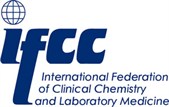IFCC Milestones 2002 - 2022

| Click here to download the pdf file |
Click here to read the flipping booklet |
The IFCC Milestones 2002-2020 is dedicated to Professor Howard Morris
who occupied, with boundless enthousiam, a unique position in the history of the IFCC
Almost 20 years after the first edition of the IFCC Milestones (Kobe 2002) and before the publication of the next 70 years IFCC anniversary book (2002-2022), this “IFCC Milestones 2002 - 2020 Golden Achievements” edition is providing an update on the evolution of the IFCC since the beginning of the 21st Century.
We understand human genetic, biology and chemistry much better today than we did even 20 years ago. The technology revolution and emerging digital ethics concerns are transforming our world at an unprecedented velocity. Recently IFCC adopted a new dynamic motto «Advance excellence in laboratory medicine for better healthcare worldwide». It has led important changes in the governance and improvements in line with the recent scientific developments and the new methods of education and communication/information, speeding up the scientific research process to face worldwide health challenges.
IFCC has a long-standing history setting global standards in collaboration with the international organisation. IFCC is also supporting members through scientific or educational efforts and organising conferences and international congresses. Many initiatives have emerged during the last two decades: electronic voting, new Executive Board (EB) composition with the presence of six IFCC Regional Federation representatives to best meet the needs of the membership and Memoranda of Understanding (MoUs) revised for an optimal efficiency. In 2016, the Foundation for Emerging Nations (FEN) was established to supporting programs that help improving the quality and delivery of Laboratory Medicine services, in emerging nations.
IFCC Divisions have undergone many changes incorporating the concept of P6 medicine (Personalised, Predictive, Preventive, Participatory, Psycho-cognitive, Public), a model of highly participatory, narrative, interactive, and “augmented” lab medicine to better interact with the practitioners and the patients. The Scientific Division (SD) beside its core business on reference materials and methods, and standardisation is also focusing on molecular diagnostics as basis of personalised medicine. The Emerging Technologies Division (ETD), recently established, is preparing IFCC workforce to identify and evaluate the disrupting technologies [New Generation Sequencing (NGS), omics, mobile/e-Health and Artificial Intelligence (AI)] and how to deliver the digital future. The Education and Management Division (EMD) is very attentive on what the implications of these changes are for the professional skills required and their consequences for the curricula, education, training, long life learning and quality management. The Communications and Publications Division (CPD) is continuously modernising the website, selecting new e-tools and improving the impact factor of the publications. This division is strongly supporting open access to science resources, as a fundamental part of its mission and a public benefit to be encouraged wherever possible to spread knowledge and allow that knowledge to be built upon.
In future, we need greater number of professionals to fill the gap of the new LabMed disciplines. Since more than 10 years, the IFCC TF-Young Scientists is attracting brightest students and young professionals. Now, they have the opportunity to play an active role. We would like to congratulate them for their collaborative skills and creativity. It is essential to foster their wish to lead change in Lab medicine and health care.
Over the years, IFCC officers have changed. We would like to thank the worldwide network of volunteers and experts, as well as the corporate members for their commitment and uninterrupted contribution to the growth and development of the Federation. As well, the IFCC office is playing a pivotal role in the success of the business and in and out relationships. We thank them for their secretariat services, hard work and commitment to IFCC.
We are confident that the new “IFCC 2002 - 2020 Milestones” will allow you to learn more about the IFCC, its function and its operations, as well as to better understand the IFCC spirit and mission statement to continue being the leading organisation in the field of laboratory medicine.
Sincerely Yours,
| Prof. Mathias M. Müller Co-Chair IFCC TF on History |
Dr. Bernard Gouget Co-Chair IFCC TF on History |
